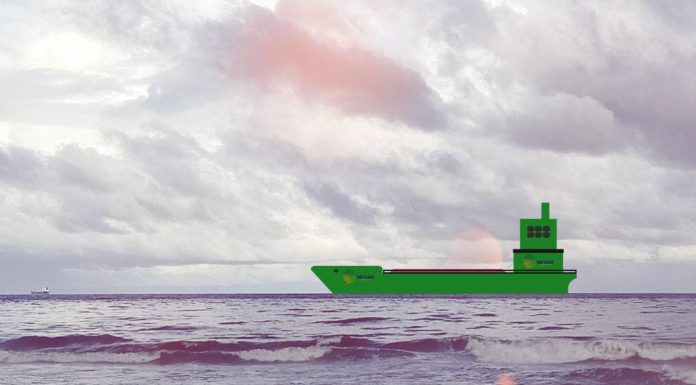- The agreement focuses on the assessment of investment opportunities for the two companies in renewable hydrogen projects across Spain and Portugal.
- This agreement represents for both companies, a further step in their commitment to accelerate the energy transition and achieve carbon neutrality.
Repsol, the multi-energy company, leading the mobility and industrial sector in the Iberian Peninsula, and EDP, through its subsidiary EDP Renewables (EDPR), the fourth largest producer of renewable energy in the world, are set to work together to assess new investment opportunities in renewable hydrogen projects across the Iberian Peninsula, reads the company press release.
Renewable energy projects in the Iberian Peninsula
The memorandum of understanding – signed by the Chief Executive Officers of the two companies, Josu Jon Imaz and Miguel Stilwell d’Andrade, at the Spanish Embassy in Lisbon this week – marks the beginning of talks between the two parties to implement renewable energy projects in the Iberian Peninsula.
The agreement recognizes three potential projects for further assessment, two in Spain and one in Portugal. One of the two projects in Spain, headed by EDP, is the Aboño project, which aims to create a ‘Hydrogen Valley’ in Asturias – one of the mainstays of the energy transition plan designed for this region. Repsol leads the project in the Basque Country, also with a large-scale electrolyzer, as part of the ‘Basque Hydrogen Corridor’ project.
In Portugal, the plan is to exploit renewable hydrogen production in Sines, taking advantage of the complementarity between Repsol’s operations at the same location through its industrial complex – as a potential renewable gas user – and EDP’s role as an energy supplier.
In identifying these initial projects, the two companies are ramping up their interest in exploring synergies for the management and operation of renewable hydrogen projects in the Iberian Peninsula, in a period of energy transition in which collaboration, not only between companies, but also between the public and private sectors, will be decisive.
Path towards net zero emissions
Repsol was the first company in its sector to commit to become a net zero emissions company by 2050 and hydrogen will be a key lever to transform its industrial complexes into multi-energy hubs. Repsol aims to lead renewable hydrogen production in the Iberian Peninsula and play a leading role in Europe with the target of having an equivalent capacity of 552 MW by 2025 and 1.9 GW by 2030.
According to Josu Jon Imaz, Chief Executive Officer of Repsol, “this agreement will bring together the complementary capabilities of two major companies to accelerate the decarbonization of the Spanish and Portuguese economies. The synergies and the will to create value in the production and commercialization of renewable hydrogen will help to develop an emerging market that still has technological and regulatory challenges.”
In order to become carbon neutral and a fully green company by 2030, EDP has been investing in renewable energy projects in various regions, thus making a decisive contribution to decarbonizing the industry and accelerating the energy transition process in sectors of the economy where it is particularly difficult to reduce emissions. To achieve this goal, working with other major companies and industrial partners is absolutely crucial.
Faster and efficient energy transition
For Miguel Stilwell d’Andrade, Chief Executive Officer of EDP, “this partnership represents a great opportunity to promote decisive projects in the area of renewable hydrogen in Iberia. By joining the best knowledge, teams and experience of two major companies, which also share ambitious sustainability goals, I am confident that we will be contributing to a faster and more efficient energy transition”.
This is not the first time that EDP and Repsol work together.
- The two companies are partners in the Windfloat Atlantic project – continental Europe’s first floating offshore wind farm, located off the coast of Viana do Castelo in Portugal.
- The Spanish multinational owns a 13.6% stake in the project, which is led by Ocean Winds – a joint venture created by EDPR and Engie.
- Other wind energy production projects, such as the offshore parks of Inch Cape or MORL, both in the UK, were also driven by a partnership between the two companies.
Did you subscribe to our daily newsletter?
It’s Free! Click here to Subscribe!
Source: Repsol















